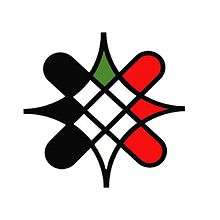Sudanese Hausa


Is the Hausa tribes of the big tribes in Sudan, has been deployed in all the cities and villages of Sudan thanks to its openness and Mshardha with various Sudanese tribes.
history of Hausa tribes in Sudan
No one can determine the date of the beginning of stability or Hausa settlement in Sudan, is that historians contend that the pilgrimage route through Sudan was passable since the beginning of the eighteenth century, pilgrims and West Africa, starting from Senegal, they were performing the pilgrimage across this road. And study the stability of this process and dealing with it require viewed in historical context, which took place in it, and spiritual context, which has in it. Many of the children of the present generation imagines that the African continent present Ptksamadtha current border since time immemorial, and few of them know that the political border between African countries do not exceed the age of 114 years (the Congress of Berlin in 1884). Prior to this date were each geographical area stretching from Senegal across the continent to the Red Sea known as the "country of Sudan," and Tantzationa kingdoms and sultanates and chiefdoms, each governor works to feed his territory even more people through polarization and promoting stability, because the population is a pillar of force economic and military, at a time when the machine did not intervene in the production it did not appear after the military machine. So it was a human group from one place to another move within the continent is smooth, serve the common interests of both guests and hosts. This is the historical context of the hand. In connection with the spiritual context, the most important stability in Sudan Hausa factors is the so-called "hard-Hajj" (Pilgrimage with hardship) and some of the economic factors inherent to him directly or indirectly. Has been cemented in the concept of al-Hajj al-Hawsawi Until recently, the futility suffered hardships and cut thousands of miles to the holy land, and exposure to various types of risks of predators and other animals, unless it ensures the performance of Hajj Salim from all facets and Neil greatest reward him. So when Haj leave his country was leaving behind him all his money, which was not confirmed from its source in terms of halal and haram, and begins to provide capital pilgrimage to earn his hand, and then hand the hard work during the flight. For this reason, it takes a pilgrimage and come back for a long period ranging from three to seven years. Although the vast majority of these pilgrims were Aovqon in the pilgrimage and return to their country, but some of them may not be able to access to the holy land. Also, some of them left behind on the way back, and they end up lasting stability. A study by a researcher Ghani (Bawa Yamba) from the Hausa in the island of the reasons that the pilgrims stumbled, lack of equal pay for work. Haj has been working for a year at the end of the year "brief demands", i.e. to repay the debt due to his wage for the year is not enough to spend it for the year, not to mention that it offers nothing.
Hausa and Mahdist War and sultanates of the old Sudan
Although the history of any clerks historical events focusing on the leaders and clerics, primarily, comes peoples in the degree of accompaniment, but history reminds obsession for their contributions to the administrative, judicial and religious levels in the old sultanates of Sudan and the Mahdist War. Caliph Abdullah .alhosa and Mahdia. We have emerged from the princes of Hausa in Mahdia Commander of the Revolution (Mandi Abu Dguen Hawsawi), who did a commendable job in the struggle with the English, and the commander of Abu Alteman which Almsrab alliance led Abbasia fry in the Nuba Mountains, which the alliance, which form a strong boost to the victories of the Mahdi and many others took part of them died a martyr and some of them died later and they were always on their Covenant heeded the call of religion and the homeland. It documents in the Museum Shiekan in the White Diary Mujahid (Hamza Abdullah Abkar) of the Imam Mahdi, and that shows many details of the path of the Mahdi through the diary started barber. Izkur and historians who have written about Abdallahi ibn Muhammad al-Khalifa said one of his advisers was a Hausa who pointed to the Caliph industry (Aljboukhanh) as learning industry in his country Hausa and manufactured Aljboukhanh for the first time in Sudan and celebrated it three days in a row
Hausa struggles in Dar Masalit
If Tcefhna record jihadist history in Sudan, we find the stars, shiny sons Hausa Sgelo their names in letters of light, although we can not restrict here, but we will give some Alnmazj from some timeless features of which are a source of pride and cherished. Mayor \ Hamid Mohamed Osman al-Hawsawi was playing great and immortal role in the history of the Sultanate of Dar Masalit (Geneina) and a record of his long history of the Sultanate of honorable and shining positions was a mujahid bar and a believer in the great turn and immortal in the history of the Sultanate of Dar Masalit has issued Sultan Abdul Rahman Baharuddin earliest Ismail document In recognition of the Sultanate turn and now I have grandchildren exist in Omdurman.